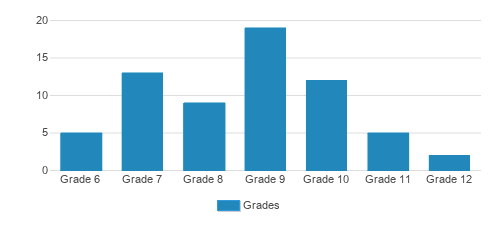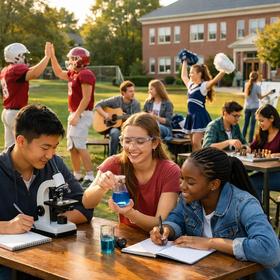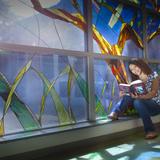We serve at-risk youth, ages 11-17, and their families. These youth have manifested emotional and behavioral disturbances.
Their diagnoses may include anxiety, depression, bipolar disorder, post-traumatic stress disorder, substance abuse disorders, ADHD and Oppositional Defiant Disorder.
As an accredited member of the Virginia Association of Independent Specialized Education Facilities (VAISEF), McAfee Academy is licensed by the Virginia Department of Education to offer both regular education and special education services.
Special education teachers work closely with home school divisions in developing individual education programs (IEPs), continuing the appropriate course work needed for graduation, and assigning academic credits.
Quick Facts (2026)
- School Type: Alternative School
- Grades: 6-12
- Enrollment: 81 students
- Acceptance rate: 85%
- Average class size: 15 students
- Application Deadline: None / Rolling
- Source: National Center for Education Statistics (NCES)
School Overview
School Type
Religious Affiliation
Grades Offered
Grades 6-12
Year Founded
1976
School Calendar
Last Day of School
Mon. May 25, 2026
Campus Size
50 acres
Student Body
Total Students
81 students
Student Body Type
Co-ed
% Students of Color
59%
State avg.: 31%
Students by Grade

Academics and Faculty
Total Classroom Teachers
9 teachers
Student-Teacher Ratio
9:1
National avg.: 13:1
Average Class Size
15 students
Tuition and Acceptance Rate
Source: National Center for Education Statistics (NCES)
Frequently Asked Questions
What is the acceptance rate of Hallmark Youthcare Richmond?
The acceptance rate of Hallmark Youthcare Richmond is 85%, which is higher than the national average of 79%.
When is the application deadline for Hallmark Youthcare Richmond?
The application deadline for Hallmark Youthcare Richmond is rolling (applications are reviewed as they are received year-round).
School Reviews
Endorse Hallmark Youthcare Richmond. Endorsements should be a few sentences in length. Please include any comments on:
- Quality of academic programs, teachers, and facilities
- Availability of music, art, sports and other extracurricular activities
- Academic or athletic awards
Recent Articles

Financial Aid 101 for Private School Families 2026
Guide to private school financial aid in 2026, with current costs, key planning timelines and practical steps parents need to maximize aid options.

Why Extracurricular Activities Matter in 2026
Discover why extracurricular activities remain essential in 2026, with updated research, costs, and admissions insights for parents and students.

How to Appeal for Financial Aid After Admission
Learn how to appeal for financial aid after admission to a private school, with expert steps, timelines, and 2026 updates for families.






